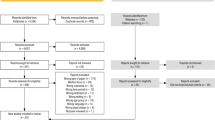Abstract
The primary aim of the present study is to explore whether brief education can change Chinese adolescents’ and parents’ beliefs about when counselors would breach confidentiality. The two secondary aims are to examine whether the brief education (1) increases adolescents’ willingness to share private information with their counselor and (2) decreases parents’ expectations of the amount of information their child’s counselor would divulge to them. Results showed that adolescents and parents who read a brief passage about the limitations of confidentiality were significantly less likely to believe counselors would breach confidentiality in situations where counselors reported they would not likely breach confidentiality. Regarding our secondary research aims, results indicate that education increases adolescents’ willingness to share more sensitive information, such as about suicidality and drug use, but it does not change parents’ expectations to have most of the information divulged to them by their child’s counselor.


Similar content being viewed by others
References
Lee FS, Heimer H, Giedd JN, et al. Adolescent mental health—opportunity and obligation. Science. 2014; 346(6209): 547–549.
Steinberg L. Risk taking in adolescence: What changes, and why? Annals of the New York Academy of Sciences. 2004; 1021: 51–58.
Bijl RV, de Graaf R, Hiripi E. The prevalence of treated and untreated mental disorders in five countries. Health Affairs. 2003; 22(3): 122–133.
Gulliver A, Griffiths KM, Christensen H. Perceived barriers and facilitators to mental health help-seeking in young people: a systematic review. BMC Psychiatry. 2010; 10(1): 1–9.
Zachrisson HD, Rödje K, Mykletun A. Utilization of health services in relation to mental health problems in adolescents: a population based survey. BMC Public Health. 2006; 6(1): 1–7.
Chandra A, Minkovitz CS. Factors that influence mental health stigma among 8th grade adolescents. Journal of Youth and Adolescence. 2007; 36(6): 763–774.
World Health Organization. Mental Health Atlas. Geneva: WHO Press, 2011.
Phillips MR, Zhang J, Shi Q, et al. Prevalence, treatment, and associated disability of mental disorders in four provinces in China during 2001–05: an epidemiological survey. The Lancet. 2009; 373(9680): 2041–2053.
Cyranoski D. China tackles surge in mental illness; psychological examinations to be added to selection procedure for government officials. Nature. 2010; 468(7321): 145–146.
Jiang GR, Xia M. A study on help-seeking propensity of Chinese undergraduates. Chinese Journal of Clinical Psychology. 2003; 11(3): 180–184.
Xia M, Jiang GR. Relationship among attribution, self-efficacy, perceived social acceptance and help seeking behaviors. Acta Psychologica Sinica. 2007; 39(5): 892–900.
Zhao J, Jiang GR, Wang Y. Correlation between trust of counseling and professional help seeking in college students. Chinese Mental Health Journal. 2011; 25(4): 249–253.
Wu MX, Liu CY, Fang XY, et al. Adolescents’ mental and behavioral problems and professional help-seeking attitudes: The mediation effect of parental knowledge. Journal Psychological Science. 2014; 37(1): 94–100.
Xie QH, Fang XY, Liu CY, et al. Relationships among psychological problems, help-seeking attitudes and help-seeking willingness of adolescents. Chinese Journal of Clinical Psychology. 2012; 20(3): 413–416.
Ford C, English A, Sigman G. Confidential health care for adolescents: position paper of the Society for Adolescent Medicine. Journal of Adolescent Health. 2004; 35(2): 160–167.
Ford CA, English A, Dowshen N, et al. Confidentiality in Adolescent Health Care. In MR Korin (Ed). Health Promotion for Children and Adolescents. New York: Springer, 2016, pp. 347–370.
Lehrer JA, Pantell R, Tebb K, et al. Forgone health care among US adolescents: associations between risk characteristics and confidentiality concern. Journal of Adolescent Health. 2007; 40(3): 218–226.
Kerwin ME, Kirby KC, Speziali D, et al. What can parents do? A review of state laws regarding decision making for adolescent drug abuse and mental health treatment. Journal of child & adolescent substance abuse. 2015; 24(3): 166–176.
Santoro KL, Schoenman J, Speedling C, et al. Protecting confidential health services for adolescents & young adults: Strategies & considerations for health plans. National Institute for Health Care Management Foundation Issue Brief. Washington, DC: National Institute for Health Care Management, 2011. Available online at: www.nihcm.org/images/stories/NIHCM-Confidentiality-Final.pdf. Accessed on October 15, 2017.
Hutchinson JW, Stafford EM. Changing parental opinions about teen privacy through education. Pediatrics. 2005; 116(4): 966–971.
Lyren A, Kodish E, Lazerbnik R, et al. Understanding Confidentiality: Perspectives of African American Adolescents and Their Parents. Journal of Adolescent Health. 2006; 39: 261–265.
Rodriguez MA, Lin J Y, Qian MY, et al. When should confidentiality be breached to report adolescent risk-taking behavior? A comparison between parents and psychologists in China. Chinese Mental Health Journal. 2011; 25(9): 655–657.
Rae WA, Sullivan J R, Razo NP, et al. Breaking Confidentiality to Report Adolescent Risk-Taking Behavior by School Psychologists. Ethics and Behavior. 2009; 19(6): 449–460.
Rodriguez MA, Fang C, Gao J, et al. Perceptions of the limitations of confidentiality among Chinese mental health practitioners, adolescents and their parents. Ethics and Behavior. 2016; 26(4): 344–356.
Ford CA, Thomsen SL, Compton B. Adolescents’ interpretations of conditional confidentiality assurances. Journal of Adolescent Health. 2001; 29(3): 156–159.
Peng XZ, Hu Z. The Changes of Contemporary Chinese Families and the Reconstruction of Family Policies. Social Sciences in China, 2015; 12: 113–132.
Wilkinson B, Shah-Arora K. A Systematic Review on Confidentiality, Disclosure, and Stigma in the United States: Lessons for HIV Care in Pregnancy From Reproductive Genetics. The New Bioethics. 2015; 21(2): 142–154.
Author information
Authors and Affiliations
Corresponding author
Ethics declarations
This study received permission from the Research Ethics Committee of Fudan University. Informed consent was obtained from all participants and their parents.
Conflict of Interest
The authors declare that they have no conflict of interest.
Additional information
Publisher’s Note
Springer Nature remains neutral with regard to jurisdictional claims in published maps and institutional affiliations.
Work was completed at the Department of Psychology, School of Social Development and Public Policy, Fudan University, Shanghai, China.
Rights and permissions
About this article
Cite this article
Xiao, Z., Rodriguez, M.A., Fang, C.M. et al. The Effect of Patient Education on Chinese Adolescent and Parental Beliefs About Counselors’ Breaches of Confidentiality. J Behav Health Serv Res 46, 340–352 (2019). https://doi.org/10.1007/s11414-018-9639-2
Published:
Issue Date:
DOI: https://doi.org/10.1007/s11414-018-9639-2



